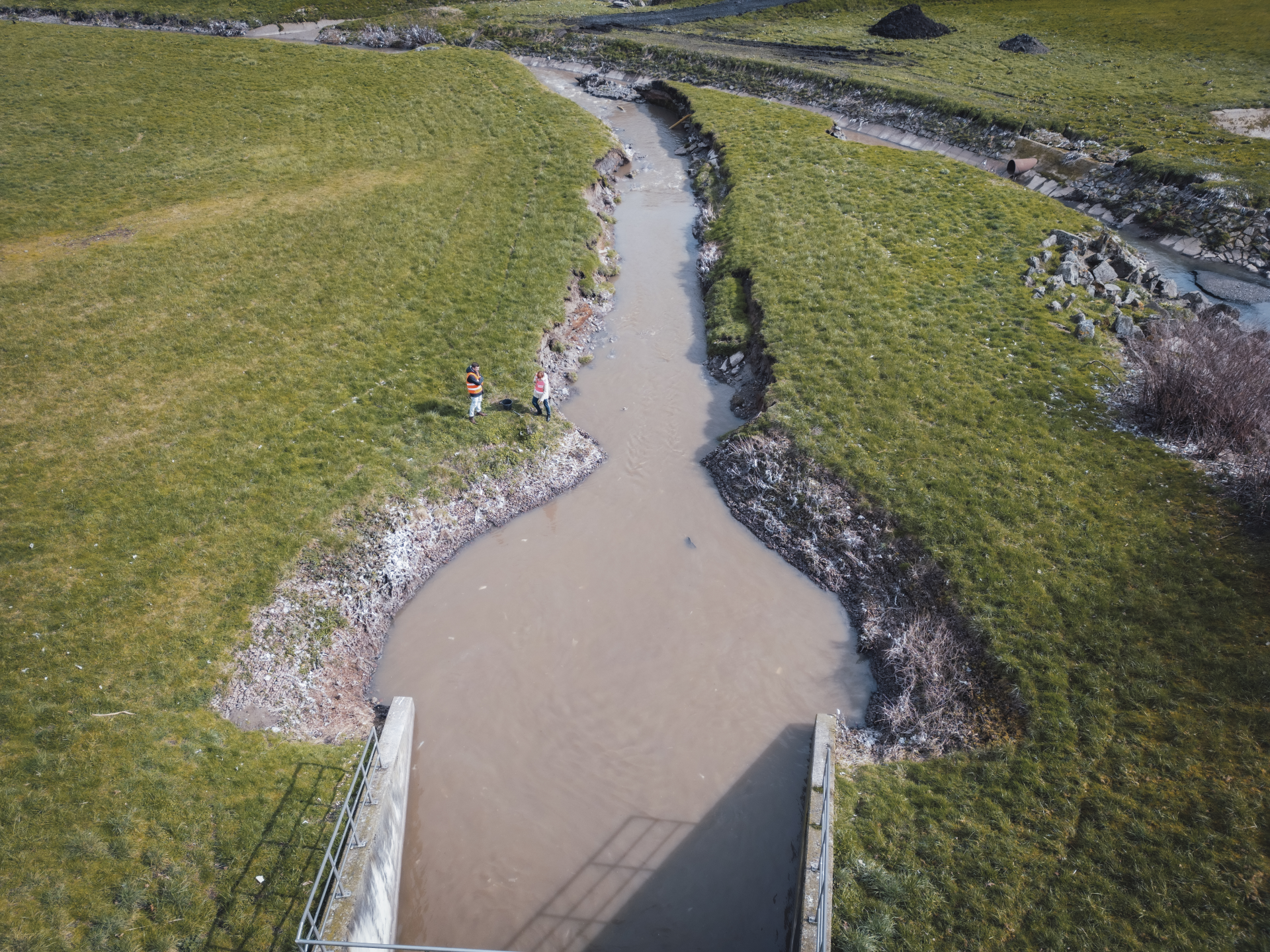
Small-Scale wastewater-analyses
Wastewater-based epidemiology is becoming increasingly interesting for the collection of health-related parameters that are otherwise labor-intensive or difficult to collect.
Especially during the COVID-19 pandemic, this approach has seen a tremendous upswing. Monitoring SARS-CoV-2 in wastewater offers advantages for various use cases. Examples include deriving circulation trends of the virus in wastewater treatment plants or early identification of emerging virus variants. Wastewater-based epidemiology is not new, however. Even before the COVID-19 pandemic, for example, the occurrence of antimicrobial resistance or illegal substances in wastewater was being researched. Further fields of application are currently being increasingly discussed.
Previous research has mostly focused on wastewater treatment plants (WWTPs), which treat wastewater from large catchment areas with up to hundreds of thousands of people. Although this method is efficient and fairly easy to implement, it has some limitations. For example, the results from sampling large WWTPs, especially in large metropolitan areas where catchments usually include several cities, do not allow for small-scale, intra-city differentiation. This is particularly problematic when identifying hotspots or examining health at smaller scale levels.
Therefore, the InUPH started a cooperation with the Institute for Artificial Intelligence in Medicine (IKIM) and the Emschergenossenschaft/Lippeverband (EGLV) in 2021 to evaluate the potential of targeted sampling in sub-catchments within the wastewater system for the (early) detection and description of spatially limited occurring or existing virus variants. For this purpose, wastewater from several sub-catchments in Essen and the associated wastewater treatment plant were sampled over a period of six weeks each in 2021 and 2022. In both projects, the SARS-CoV-2 single nucleotide variants in the wastewater will be determined to investigate, among other things, the potential for detecting new known SARS-CoV-2 variants.
The results of this project, in addition to providing an expanded understanding of the distribution of SARS-CoV-2 RNA in the wastewater system, will provide insight into opportunities for wastewater-based health reporting to complement existing public health tools. The focus of InUPH here is primarily on a small-scale analysis approach.
In Cooperation with:
Data Science, Institute for Artificial Inteligence in Medicine (IKIM), University Hospital Essen
Contact InUPH

Dr. rer. nat.
Dennis Schmiege
Project coordinator InUPH
Publications:
• Schmiege D, Haselhoff T, Thomas A, Kraiselburd I, Meyer F, Moebus S. Small-scale wastewater-based epidemiology (WBE) for infectious diseases and antibiotic resistance: A scoping review. International Journal of Hygiene and Environmental Health. 2024;259:114379. https://doi.org/10.1016/j.ijheh.2024.114379
• Schmiege D, Kraiselburd I, Haselhoff T, Thomas A, Gosch J, Doerr A, Schoth J, Teichgräber B, Moebus S, Meyer F. Analyzing community wastewater in sub-sewersheds for the small-scale detection of SARS-CoV-2 variants in a German metropolitan area. Science of the Total Environment, 898, 165458. 2023. https://doi.org/10.1016/j.scitotenv.2023.165458
• Schmiege D, Zacharias N, Sib E, Falkenberg T, Moebus S, Evers M, Kistemann T. Prevalence of multidrug-resistant and extended-spectrum beta-lactamase-producing Escherichia coli in urban community wastewater. Science of The Total Environment. 2021;785:147269. https://doi.org/10.1016/j.scitotenv.2021.147269
